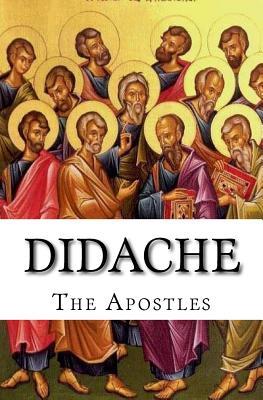
The Greek text is from the Codex Heirosolymitanus, which is itself dated 1056. It was discovered in 1875 in Constantinople in the library of the patriarch of Jerusalem by Philotheos Bryennios, the Greek Orthodox archbishop of Nicomedia. A few fragments had been known previously. Unlike the obvious fakes from the first few centuries, "The Didache" does not actally assert apostolic authorship. The writing is in the singular ("My child....")
The text refers to a collection of sayings of Jesus called "The Gospel of the Lord" as the source for the Lord's Prayer, but to none of the canonical gospels. The Didache contains sayings of Jesus found in our first gospel ("Matthew") and common to the first and third ("Matthew" and "Luke"), but not the second gospel ("Mark").
The Greek text is from the Codex Heirosolymitanus, which is itself dated 1056. It was discovered in 1875 in Constantinople in the library of the patriarch of Jerusalem by Philotheos Bryennios, the Greek Orthodox archbishop of Nicomedia. A few fragments had been known previously. Unlike the obvious fakes from the first few centuries, "The Didache" does not actally assert apostolic authorship. The writing is in the singular ("My child....")
The text refers to a collection of sayings of Jesus called "The Gospel of the Lord" as the source for the Lord's Prayer, but to none of the canonical gospels. The Didache contains sayings of Jesus found in our first gospel ("Matthew") and common to the first and third ("Matthew" and "Luke"), but not the second gospel ("Mark").
Paperback
$9.00